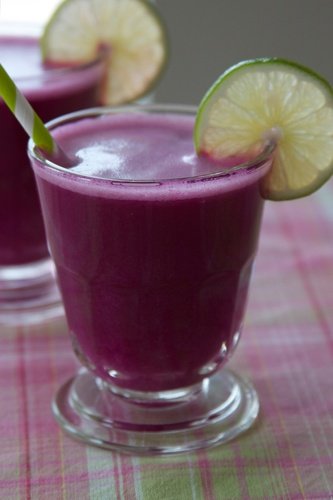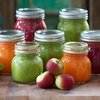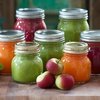Purple Passion
Ingredients
Yields 32 fl oz
-
Cabbage (red)1/4 head, medium (about 5" dia) 209.75g
-
Lime1 fruit (2" dia) 67g
Directions
- Process all ingredients in a juicer, shake or stir and serve.


